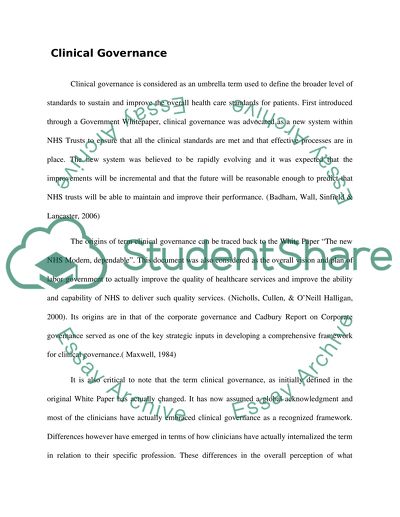Cite this document
(“Clinical Governance Essay Example | Topics and Well Written Essays - 2500 words”, n.d.)
Retrieved de https://studentshare.org/health-sciences-medicine/1400634-a-critical-evaluation-of-clinical-governance-in
Retrieved de https://studentshare.org/health-sciences-medicine/1400634-a-critical-evaluation-of-clinical-governance-in
(Clinical Governance Essay Example | Topics and Well Written Essays - 2500 Words)
https://studentshare.org/health-sciences-medicine/1400634-a-critical-evaluation-of-clinical-governance-in.
https://studentshare.org/health-sciences-medicine/1400634-a-critical-evaluation-of-clinical-governance-in.
“Clinical Governance Essay Example | Topics and Well Written Essays - 2500 Words”, n.d. https://studentshare.org/health-sciences-medicine/1400634-a-critical-evaluation-of-clinical-governance-in.


